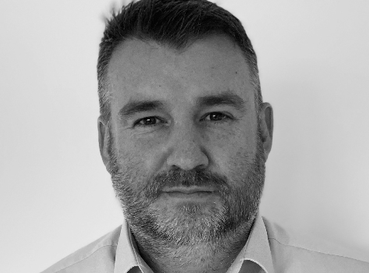
5
Rhys Long
Elite Analysts Forum
July 24, 2019
RHYS LONG is one of the most experienced analysts in the whole of British sport.
From 2007 to 2016, he was Head of Performance Analysis for Wales Rugby and also worked with Warren Gatland on two British and Irish Lions tours. In February 2016, the Welshman was appointed Head of Performance Analysis and Insight for the Football Association, where he oversees a team of 17 analysts.
Speaking to the Training Ground Guru Podcast, live from the 2019 Hudl Elite User Conference in Las Vegas, Long outlined his philosophy.
1. MEASURING WHAT COUNTS IS KEY
Rhys Long: Everyone wants data and is talking about the data revolution, but you have to remain true to what you are trying to use this information for: to improve performance.
If it doesn’t do that, then what are we doing it for? It’s not to look great on Twitter. We are still working with coaches and players and are all trying to win. That’s the constant that will still be the same in five years’ time.
You go through reams and reams of data but, ultimately, what does it come back to? Showing one or two crucial points of video to a coach or player to get your point across.
We talk about trying to give simple messages. I think we have to be careful in terms of how much good information is out there.
2. DON’T JUST FOLLOW FADS
There’s nothing worse than using something because it’s in vogue. I’ve seen it so many times over the years. People jump on something because it’s in vogue but you look at the utilisation and it’s minimal.
How can technology help us make sure the right information comes through at the right time?
How do the products of the future actually work in conjunction with your game model?
We are asking analysts and coaches now to interpret eight angles of video and you’ve got multiple data sets coming through from multiple sources, whether it’s your own department or third parties.
The big point is how do we use some of the good technologies that are coming out to alleviate pressure points in workflows? It can’t diminish from your core objectives, which are winning games, helping players to improve and helping coaches to make good decisions.
That’s all the technology is ultimately there for.
3. WORK TO YOUR OWN GAME MODEL
There is lots of good data, but you have to make it pertinent to yourself. At the FA, we have gone down a different route and are trying to measure what counts and contextualise what’s in our coaches’ brains. We are trying to really understand what the coaches’ viewpoints are and measure that.
Something I’ve held true throughout my whole career is while there is loads of good data out there, but half of it might not be applicable to what your coaches want and what you are seeing in your game model.
It really comes down to how you collect your own data. Training the amount of analysts we have, we can make sure the data is reliable and pertinent to our game model.
If we need to be flexible and change it on the fly, we can. If there is more data we need to collect in a certain area we can develop templates, rather than trying to get a third party to try and reflect that, which is very difficult.
While there is an abundance of data out there, measuring stuff that really counts is key. The challenge is to try and contextualise the data.
4. REMEMBER IT’S A TEAM SPORT
It’s amazing how delivery has developed over the years. We started with big presentations in meeting rooms and getting the whole squad in, before moving into the realms of iPads and laptops and even smaller with phones. We’re probably going the other way at the moment.
It’s still a team game and you still have to communicate and understand what each other is thinking. The learning is individualistic but you can’t lose sight of the fact it’s still a team sport and ultimately player communication and understanding, especially at international level, is really needed.
5. GIVING PLAYERS OWNERSHIP
Your players are probably your most under-utilised resource. Rather than getting the analysts to cut load of clips for every player’s individual development plan, we can use our players to get more involved and take on more ownership, cutting clips themselves that link into stuff they want to get better at.
With just analysts or coaches, it’s very difficult to do 20 one-on-one sessions with a two-day turnaround, but if you have players with the skillset to do that themselves it speeds things up.
Getting them to place themselves at the heart of their learning is the objective. We constantly talk about how to improve a coach’s or analyst’s workflow – well, let’s go back to our target audience.
6. FIND OUT WHERE YOU FIT IN
Working with loads and loads of different analysts over the years, I think the key point is that they’re different. You’ve got a team and you need to get the dynamics right there.
You have analysts who are great articulators, who are incredible in an environment with coaches and players; you have others who want to be further away from that and focus on the research element.
The only advice I would give to an analyst is to be true to their own skillset and ultimately not try and deviate too much from themselves. Whatever your skillset is, really play on that and be true to it.
Don’t change your skillset to fit into the group. The one thing it always comes back to is your work ethic and working out where you fit in.